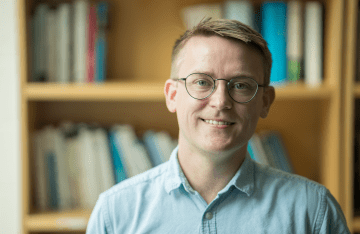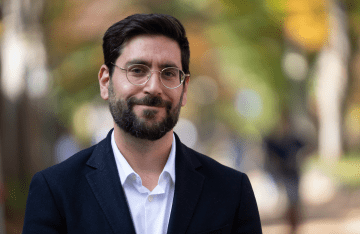Media Policy Scholar Victor Pickard Promoted to Full Professor
Pickard's work imagines how we might change our media systems to better serve democratic society.
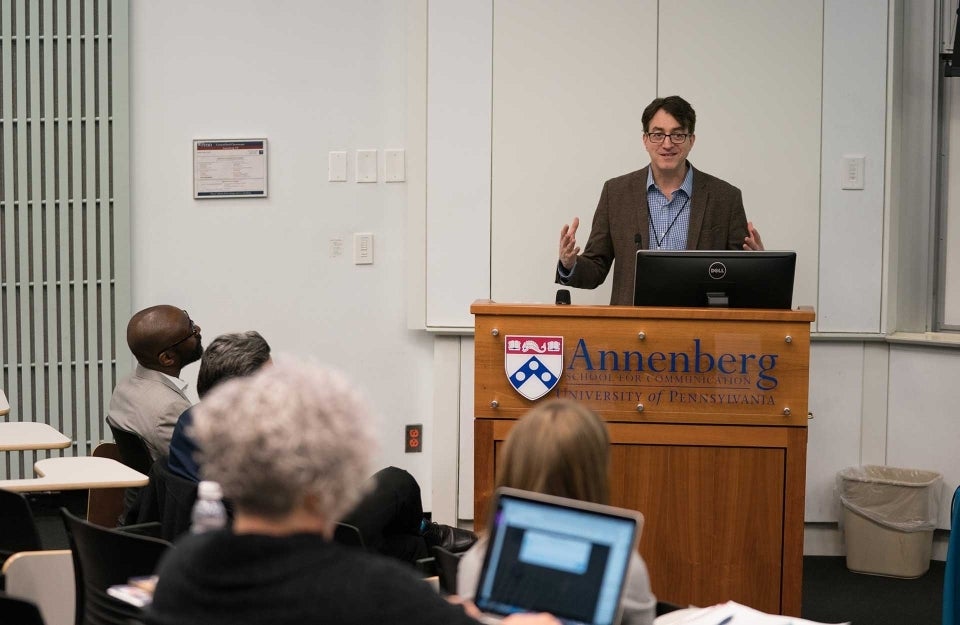
Victor Pickard didn’t always know he wanted to be an academic, but he’s wanted to be a writer for as long as he can remember. And teaching runs in his family; his grandfather taught in a one-room school house in rural West Virginia. So it’s not entirely surprising that — after teaching English in Japan, backpacking through Asia, reading widely, and a few other twists and turns — he decided to become a media scholar.
“Traveling and reading really changed my perspective on things: about the need for social change, about the United States’ role in the world, and about my role in society,” says Pickard. “And I came to believe that the path toward progressive social change ran through media and communication systems.”
Fast forward to the current moment, and Pickard — who was recently promoted to full professor at the Annenberg School for Communication at the University of Pennsylvania — researches the history and political economy of media institutions, media activism, and the politics and foundations of media policy. His work aims to understand how and why our current media systems were developed and to imagine how we might change them to better serve democratic society.
“Victor Pickard is a leading voice among media policy scholars,” says Annenberg Dean John L. Jackson, Jr. “His work provides timely, critical insight into the past and present state of our media systems and offers hopeful visions of a future journalism that better serves all of us. We are lucky to have him on our faculty, and I am thrilled he has been promoted to full professor.”
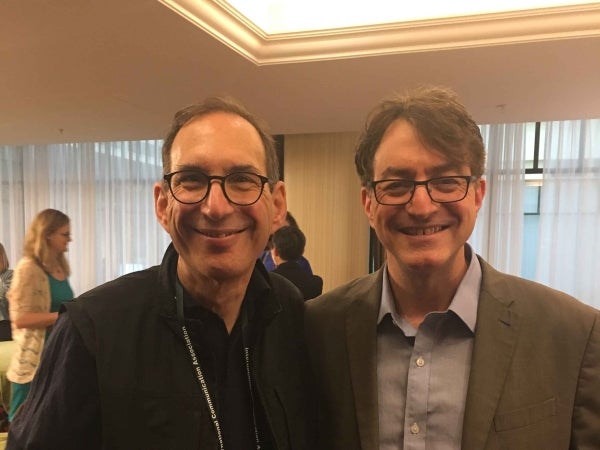
Pickard’s work has been widely published, including over 100 book chapters, articles, reports, and essays, and he’s the author or editor of six books. His most recent book, Democracy Without Journalism?: Confronting the Misinformation Society (Oxford University Press, 2019), considers the historical precedents, market failures, and policy inaction that led to the journalism crisis and the spread of misinformation, arguing that the root of both lies in the very structure of our profit-driven media system.
Building on Democracy Without Journalism?, Pickard is currently working on his next book which imagines what a new media system might look like. He envisions this future journalism — free from commercialism and founded on public ownership — as one that focuses on addressing social problems like climate change and structural inequalities. He is also developing a critical intellectual history of the field of Communication and a book that interrogates traditional democratic theories of media.
Pickard’s work has been recognized by numerous awards, notably the Frank Luther Mott Journalism and Mass Communication Research Book Award from Kappa Tau Alpha and the Harry W. Stonecipher Award for Distinguished Research on Media Law and Policy from the Association for Education in Journalism and Mass Communication.
In addition to his academic publications, Pickard writes for, and is often quoted in, popular media outlets like Jacobin, the Nation, Columbia Journalism Review, the Guardian, the Washington Post, and others. Committed to public scholarship, he believes it is important to engage with folks outside academia.
“Being a public scholar means raising awareness about social problems, making policy interventions, and engaging with diverse communities,” Pickard says. “It’s important to invite a wide range of public voices and perspectives into our research processes and into policy debates. We have to step outside the seminar room to not just study and describe the world, but to try to change it.”
Building on Democracy Without Journalism?, Pickard is currently working on his next book which imagines what a new media system might look like. He envisions this future journalism — free from commercialism and founded on public ownership — as one that focuses on addressing social problems like climate change and structural inequalities. He is also developing a critical intellectual history of the field of Communication and a book that interrogates traditional democratic theories of media.
Pickard’s work has been recognized by numerous awards, notably the Frank Luther Mott Journalism and Mass Communication Research Book Award from Kappa Tau Alpha and the Harry W. Stonecipher Award for Distinguished Research on Media Law and Policy from the Association for Education in Journalism and Mass Communication.
In addition to his academic publications, Pickard writes for, and is often quoted in, popular media outlets like Jacobin, the Nation, Columbia Journalism Review, the Guardian, the Washington Post, and others. Committed to public scholarship, he believes it is important to engage with folks outside academia.
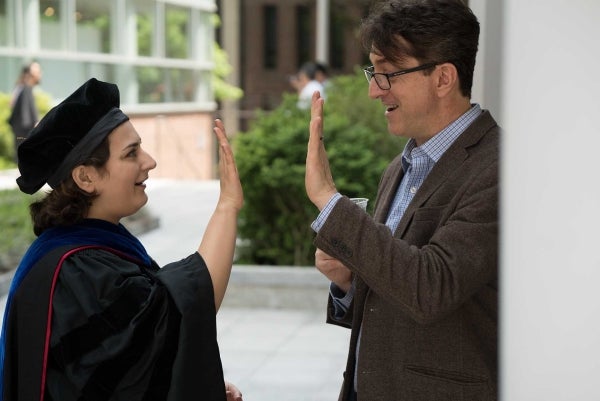
“Being a public scholar means raising awareness about social problems, making policy interventions, and engaging with diverse communities,” Pickard says. “It’s important to invite a wide range of public voices and perspectives into our research processes and into policy debates. We have to step outside the seminar room to not just study and describe the world, but to try to change it.”
Toward this end, Pickard is the co-director of the Media, Inequality and Change (MIC) Center, which is committed to studying the political economy of social problems, media, and democracy, while engaging with local activist projects and connecting with national and international social movements. Thanks to a grant from the Independence Public Media Foundation, the MIC Center will conduct a structural analysis of Philadelphia’s media ecosystem with the aim of developing policy recommendations for community-led media infrastructure.
“The MIC Center is an activist and intellectual space where research, practice, and engaged scholarship come together,” says Pickard. “At this precarious moment in our nation’s history, we’re keen to assist key activist struggles for social justice and work towards creating new media institutions that focus on confronting racism, sexism, classism, xenophobia, and other systemic inequities.”
When asked what his favorite part of the job is, Pickard mentions the fulfillment he receives from digging into tough questions and points to the collaborative elements of the research process.
“I love discussing scholarship and generating new thoughts within this vibrant community,” he says. “I’m so fortunate to work with such engaging colleagues and the super-smart students at Annenberg.”

